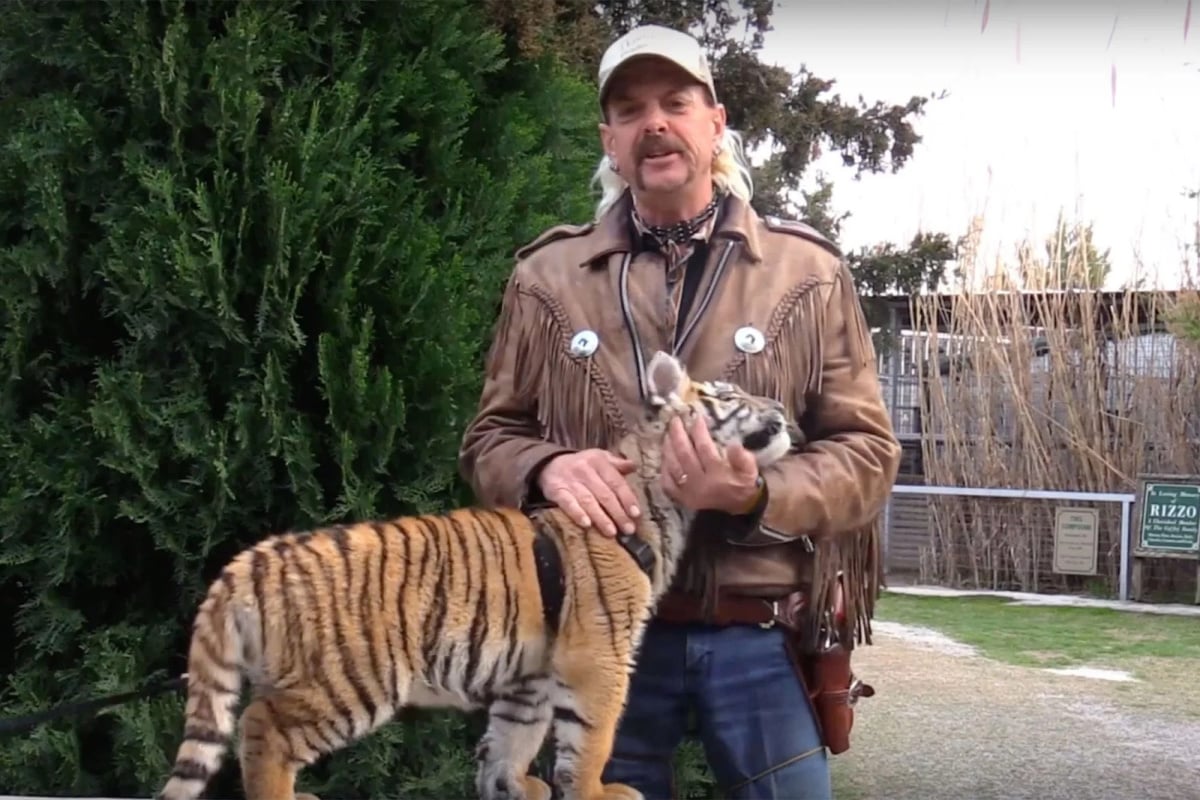In the realm of true crime and documentary series, few productions have garnered as much attention—and controversy—as Netflix’s “Tiger King.” The series chronicles the tumultuous lives of exotic animal breeders, notably Joe Exotic and Carole Baskin, but does it capture the full spectrum of animal cruelty inherent in the world it portrays? While “Tiger King” has become a pop culture phenomenon, the narrative’s lens may have obscured a far grimmer reality behind the scenes.
At its core, “Tiger King” introduces viewers to the bizarre and often chaotic lives of those who own and operate private zoos and wildlife parks. The show presents outlandish scandals and interpersonal conflicts among its cast, which are indeed compelling. However, what Netflix artfully omits is the systemic abuse and neglect experienced by these animals. This disjunction raises pivotal questions about the ethics of animal ownership and the facades that often mask cruelty.
One of the glaring omissions in “Tiger King” is the treatment of the animals themselves. The viewer is privy to the flamboyant personalities of the zoo owners, but behind these personas lies a darker narrative of neglect. Captive breeding, which is prevalent in the exotic animal industry, often leads to a life of confinement for these creatures. The statistics are harrowing: a significant proportion of big cats, for example, are bred in inhumane conditions without regard for their well-being. Many are kept in cramped cages, deprived of the vast territories they would roam in the wild. Their quality of life is typically substandard, riddled with health issues and psychological distress.
The series touches on the presence of cub-petting—a practice rife with controversy and ethical concerns. The initial appeal lies in the fleeting moments of cuteness, where individuals get to handle young, adorable baby tigers. However, this fleeting experience comes at a significant cost. Once these cubs grow, they are often discarded, sold to the highest bidder, or left to languish in grim conditions. The heartwarming façade quickly dissipates, revealing layers of exploitation. Adopting a tiger as an accessory or novelty undermines the very essence of these majestic creatures.
Moreover, “Tiger King” delves into the world of private ownership of exotic animals, which is inherently fraught with peril for both the animals and the owners. Joe Exotic’s flamboyant lifestyle and outrageous antics may capture attention, but they also distract from the ethical implications of maintaining so many exotic animals. The series only skims the surface of the wider issue concerning the legality and morality of keeping such animals as pets or for entertainment. This raises crucial overdue conversations about legislation that permits individuals to possess wild animals, often with insufficient oversight, leading to rampant abuse and neglect.
This reality is exemplified through the plight of roadside zoos that often go unregulated. Many of these establishments lure visitors with claims of conservation and education, yet they prioritize profit over genuine animal welfare. The portrayal of these facilities in “Tiger King” could mislead viewers into believing that such situations are benign or typical of animal care. However, the experiences of these animals tell a different story, illustrating neglect and exploitation under the guise of entertainment. The animals often exhibit signs of stress, such as pacing and aggression, behaviors indicative of their suffering.
It is also crucial to explore the ramifications of celebrity culture fuelled by shows like “Tiger King.” The larger-than-life personas created within these narratives foster a troubling glamorization of animal ownership. People may be tempted to emulate the figures displayed onscreen, leading to an increase in demand for exotic animals as pets. The reality is starkly different: many of these owners are ill-equipped to care for such complex beings, often resulting in a tragic cycle of abandonment or death. Consumers must grapple with their complicity in building a market predicated on suffering.
While “Tiger King” offers a sensationalized saga filled with eccentricities, it falls short of delivering a comprehensive exploration of animal rights. Viewers are encouraged to acknowledge the exploitation of living beings for entertainment value. The romanticization of big cat ownership does a disservice to the very essence of these animals, which face significant threats in their natural habitats, compounded by the dangers posed by the exotic pet trade.
In reflection, it is imperative for us to engage in the difficult conversations that “Tiger King” ignites. If the allure of television compels us to partake in the world of exotic animals, we must simultaneously advocate for their welfare. One must scrutinize the institutions that allow a profit-driven industry to flourish, often at the expense of these animals’ lives. We should challenge ourselves to envision a future where ethical treatment and conservation take precedence over exploitation and entertainment.
The legacy of productions like “Tiger King” should not merely dwell on sensationalism but rather prompt serious discourse about the ethics surrounding animal care and ownership. The stark reality of animal cruelty hidden beneath layers of spectacle serves as a call to action for activists, viewers, and consumers alike. It is our collective responsibility to reshape narratives that erase the suffering of animals for the sake of profit and entertainment. Only through vigilance and advocacy can we hope to cultivate a compassionate society where animals are respected and protected, not commodified and discarded.








